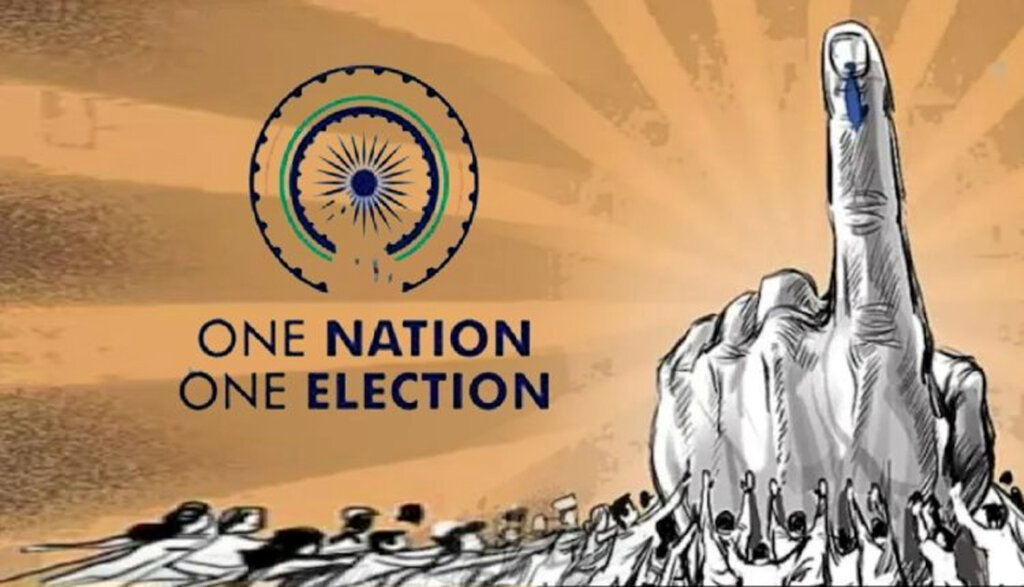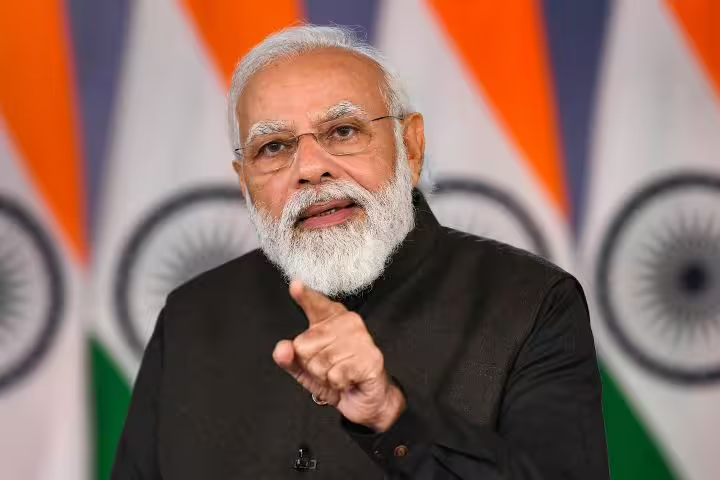One Nation, One Election
One Nation One Election is an initiative in India to hold elections for the Lok Sabha and state assemblies simultaneously, which could revolutionize the electoral framework by simplifying processes and cutting down on costs and interruptions.
One nation one election The report ‘One Nation, One Election’ approved by the Union Cabinet headed by Prime Minister Narendra Modi The New India Times Observed that a proposal to ‘align’ Lok Sabha and State Assembly elections across the country would have the advantage of saving costs, making the process more efficient, and increasing voting percentages, but there are considerable constitutional as well as practical obstacles to its smooth implementation.

One Nation One Election
On Wednesday, the Union Cabinet headed by Prime Minister Narendra Modi approved the report on ‘One Nation, One Election’ submitted by the acting President Ramnath Kovind’s.
It is referred to as ‘One Nation, One Election’.
This is an initiative to conduct elections to Lok Sabha and State Assemblies simultaneously across India. Prime Minister Narendra Modi has always been for this initiative.
Advantages of Concurrent Elections
Proponents claim that conducting combined elections can lead to substantial cost savings, improve administrative efficiency, and may also result in increased voter participation.
Reports indicate that approximately ₹60,000 crore was spent during the 2019 Lok Sabha elections. This figure encompasses expenses incurred by political parties involved in the elections as well as the costs incurred by the Election Commission of India in managing the electoral process. Moreover, significant costs arise from the frequent movement and deployment of security forces. As personnel are assigned to election duties, the regular functions of government operations are often compromised during elections. The extensive manpower hours required for these duties are not included in the election budget.History of Simultaneous Elections One Nation One Election.
Arguments For and Against Simultaneous Elections
Proponents contend that holding frequent elections places a heavy burden on state resources, keeps political parties in a constant state of campaigning, and may encourage corrupt practices. On the other hand, critics raise concerns about the risk of central government overreach, which could undermine regional parties and affect state-level politics.
History of Simultaneous Elections
The idea of holding simultaneous elections originated during the first general elections in 1951-52, when they were aligned with the state assembly elections. This practice continued until 1967, when the emergence of hung assemblies disrupted this trend. In the years that followed, several Lok Sabhas and state assemblies were dissolved prematurely, which further complicated the timeline for conducting concurrent elections.
Progress to Date
Although the synchronization of elections has not yet been realized, the topic has been on the agenda since before the current government under Prime Minister Modi took office. The Election Commission of India has repeatedly endorsed the concept of simultaneous elections, articulating its position on multiple occasions, including during a meeting with the 22nd Law Commission in 2022.
Challenges in Adopting One Nation, One Election
Despite its potential advantages, the proposal encounters significant resistance. Critics express concerns regarding the impact on democratic values, the risk of overshadowing local issues by national topics, and the necessity for constitutional changes with One Nation One Election.
Implementing simultaneous elections demands constitutional amendments, requiring a two-thirds majority in Parliament and ratification from at least half of the states. Alterations to crucial articles, such as 83, 85(2)(B), 174(2)(B), 356, and 75(3), as well as modifications to the Representation of People’s Act, 1951, present formidable obstacles. Additionally, ensuring adequate availability of electronic voting machines (EVMs), as well as sufficient polling and security personnel, further complicates the process of One Nation One Election.


Post Comment